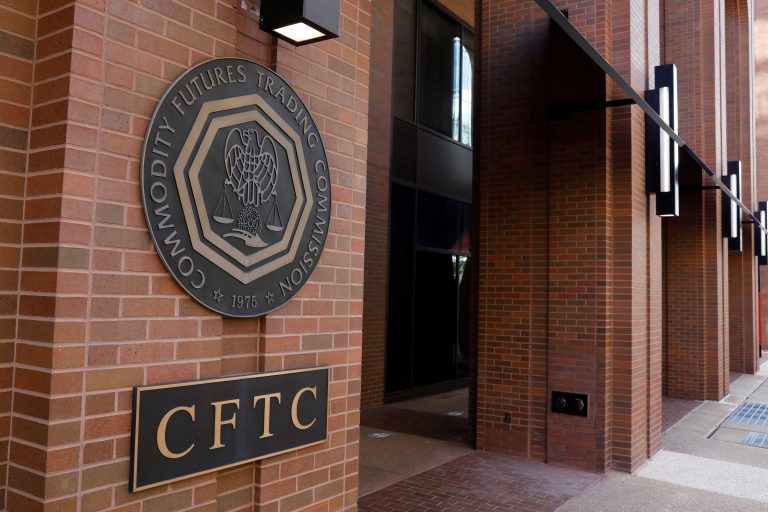
Gemini Trust Company, founded by Cameron and Tyler Winklevoss, filed a formal complaint on June 13, 2025, with the Commodity Futures Trading Commission’s (CFTC) Inspector General, Christopher Skinner, accusing the agency’s Division of Enforcement (DOE) of conducting a seven-year “lawfare” campaign against the crypto exchange. The 13-page letter alleges that the CFTC’s 2022 lawsuit, which claimed Gemini made false or misleading statements about its Bitcoin futures contract in 2017, was based on fraudulent whistleblower claims from a discredited former Chief Operating Officer, Benjamin Small.
Gemini asserts that Small, fired in 2017 for facilitating a $7.45 million rebate fraud scheme involving customers Hashtech LLC and Cardano Singapore, filed false whistleblower reports to “destroy” the exchange. A 2022 arbitrator ruling found Small had lied about his experience, fraudulently obtained his job, and made false statements in his whistleblower submission. Despite this, the CFTC pursued Gemini for years, culminating in a $5 million settlement in January 2025, which Gemini claims it paid without admitting fault due to a lack of viable alternatives.
The complaint names nine CFTC lawyers, accusing them of prioritizing career advancement over consumer protection and wasting taxpayer resources on baseless charges. Gemini argues that its Bitcoin futures contract, linked to Cboe’s 2017 launch, operated without manipulation for 19 months, and no market harm was proven. The exchange aligns its complaint with CFTC Acting Chair Caroline Pham’s calls for reform, criticizing the agency’s “regulation-by-enforcement” approach and toxic culture. Gemini seeks internal accountability and supports broader regulatory clarity for crypto markets.
Register for Tekedia Mini-MBA edition 19 (Feb 9 – May 2, 2026).
Register for Tekedia AI in Business Masterclass.
Join Tekedia Capital Syndicate and co-invest in great global startups.
Register for Tekedia AI Lab.
The CFTC’s 2022 complaint alleged Gemini misled regulators about its Bitcoin auction pricing mechanism’s susceptibility to manipulation, violating the Commodity Exchange Act. Gemini counters that the investigation ignored evidence discrediting Small and failed to address the actual fraud perpetrators. Gemini’s accusation of a “lawfare” campaign suggests the CFTC’s enforcement actions may prioritize aggressive litigation over fair regulation, potentially chilling innovation in the crypto industry. If substantiated, this could erode trust in the CFTC’s impartiality and fuel broader criticism of “regulation-by-enforcement” tactics, as echoed by CFTC Acting Chair Caroline Pham and industry stakeholders.
The complaint highlights a perceived misuse of whistleblower programs, where false or self-serving claims (e.g., Benjamin Small’s) could trigger costly investigations, disproportionately harming compliant firms like Gemini. This may prompt calls for stricter vetting of whistleblower allegations to prevent abuse. The case underscores ongoing tensions between crypto exchanges and regulators, particularly as the CFTC asserts jurisdiction over digital assets like Bitcoin as commodities. A successful challenge by Gemini could limit the CFTC’s ability to pursue similar enforcement actions, potentially emboldening other crypto firms to resist regulatory pressure.
However, if the CFTC’s actions are upheld, it could signal tighter scrutiny of crypto exchanges’ compliance with Commodity Exchange Act requirements, especially around market manipulation and transparency in futures contracts. Gemini’s claim that Small, a discredited former employee, may receive a $1.5 million whistleblower award despite fraudulent conduct raises questions about the CFTC’s whistleblower program integrity. This could lead to reforms in how awards are evaluated, ensuring they reward genuine misconduct reports rather than incentivizing bad-faith claims.
Gemini’s $5 million settlement, despite no admission of liability, reflects the financial burden of prolonged regulatory battles, even for firms confident in their compliance. This may push other crypto firms to settle rather than fight, reinforcing perceptions of regulatory coercion. The complaint’s outcome could set a precedent for how agencies handle enforcement actions based on disputed whistleblower claims, potentially influencing future litigation strategies across financial sectors.
Regulators argue that robust enforcement protects investors and market integrity, while crypto firms like Gemini see these actions as punitive and misaligned with the decentralized, rapidly evolving nature of digital assets. Gemini’s alignment with Acting Chair Pham’s reformist stance highlights a divide within the CFTC itself. Progressive voices within the agency advocate for clearer rules and less reliance on enforcement, while the Division of Enforcement’s aggressive tactics suggest a more traditional, litigation-heavy approach. This internal conflict could shape future CFTC policies.
The public and industry may perceive the CFTC as either a necessary enforcer of market fairness or an overzealous regulator targeting crypto firms for political or careerist reasons. Gemini’s complaint, if validated, could amplify distrust in federal agencies, particularly among crypto advocates who already view regulators skeptically. Conversely, if the CFTC successfully defends its actions, it could bolster its authority but deepen the crypto industry’s sense of being unfairly targeted, widening the divide.
The case exposes a divide between whistleblower protections meant to uncover misconduct and their potential exploitation for personal gain. This could spark debate over balancing incentives for legitimate whistleblowers with safeguards against frivolous or vindictive claims, affecting how firms and regulators interact with such programs.
Gemini’s complaint arrives amid heightened regulatory scrutiny of crypto exchanges, with the SEC and CFTC increasingly active. Posts on X reflect polarized sentiments: some users support Gemini’s pushback against perceived regulatory overreach, while others argue the CFTC’s actions are justified to curb crypto market risks. The outcome of this complaint could influence not only Gemini’s operations but also the regulatory landscape for cryptocurrencies, potentially prompting Congressional oversight or policy changes to address the growing regulator-industry divide.



